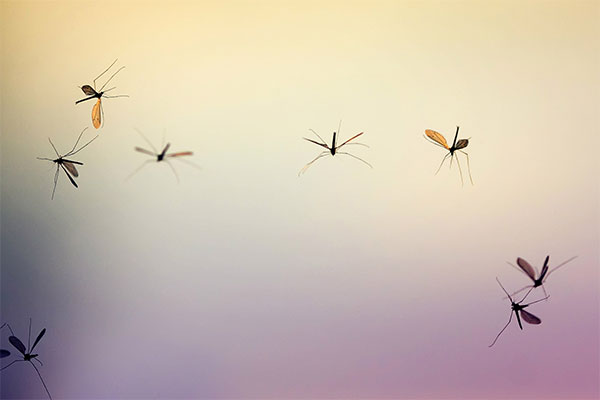
Protection against mosquitoes
You know the story: You’re having a nice evening outdoors and you’re under attack by mosquitoes. Or children can’t get to sleep because of the mosquito in their bedroom; a sign of what awaits you when you go to bed. Especially in the summer, mosquitoes can be a real nuisance. And yes, the females are the ones that bite, because they need blood to produce good eggs. Male mosquitoes can’t bite.
But what helps against mosquitoes and what doesn’t? We will tell you more about the mosquito and what you can do to protect yourself and your family against common mosquitoes and more exotic mosquitoes like the malaria mosquito.
Mosquitoes can smell humans and animals
Mosquitoes can smell you from about 50 metres and 1 in 10 people have an attractive smell to female mosquitoes, particularly pregnant women. This is genetically determined, so there’s not a lot you can do about it. Mosquitoes are attracted to the carbon dioxide and lactic acid in the sweat of people. So, the more active you are, the greater the chance that mosquitoes will know where to find you and attack.
Female mosquitoes lay their eggs in stagnant water. It is always a good idea to check whether there are any places with stagnant water in and around your house or caravan, like flower trays and pots, rain barrels and small puddles. The chances are that they will contain mosquito larvae that will be fully-grown mosquitoes in a few days.
What helps to fight mosquitoes?
There are a few precautionary measures you can take to reduce the chances to be bitten by a mosquito.
- Install insect screens on window and door frames to keep out mosquitoes.
- Check crawling spaces to ensure there is no stagnant water.
- Make sure there are no small puddles of water around the house (flower pots, buckets, etc.).
- Check the (bed)room for mosquitoes, after installing insect screens or closing the windows.
- Sleep under a mosquito net.
- Apply Care Plus Anti-Insect Natural to exposed skin and the outside of your duvet cover or sheet.
There are certain substances that mosquitoes hate. DEET has been around for about forty years and has been proven to be the most effective protection against mosquito bites. Insect repellents containing 30% DEET provide about 5 hours of protection from mosquitoes. For children over two months of age, you can use concentrations with 10% or less DEET or Anti-Insect Natural without DEET. Always read the instructions on the packaging. Use in moderation, do not apply or spray on or near open skin, eyes, mouth, nose, under your clothes or near food. Wash your hands thoroughly after application.
Anti-Insect Natural
Care Plus® Anti-Insect Natural is made with natural lemon eucalyptus extracts. Its effectivity has been proven by scientific (field) studies.
Care Plus® Natural Spray, 60 ml. 6-hour protection against mosquitoes made with natural ingredients.
Anti-Insect with DEET
Care Plus® Anti-Insect DEET 20% is made with natural lemon eucalyptus extracts. This is the only natural ingredient that can be used as an insect repellent. Its effectivity has been proven by scientific (field) studies.
Care Plus® Anti-Insect DEET 20%, 80 ml. 6-hour protection against mosquitoes.
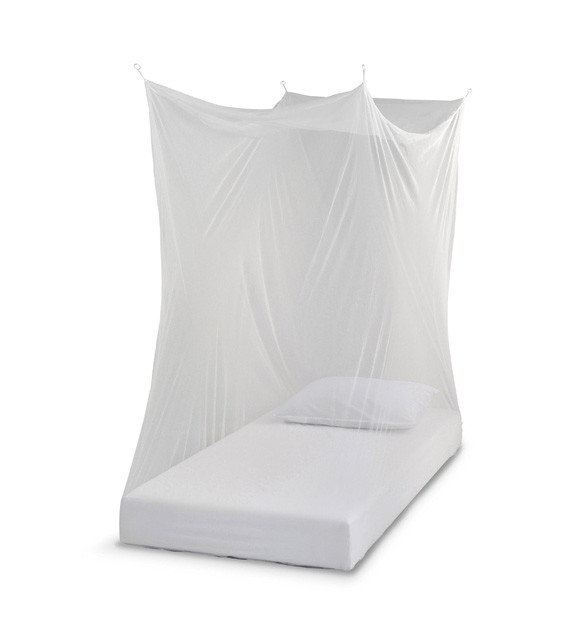
Travel mosquito nets
Care Plus® Anti-Insect Deet gel 30% is the strongest insect repellent for the skin. Suitable in tropical regions (risk of malaria, dengue, yellow fever), Europe and city trips.
Care Plus® Anti-Insect DEET 30%, 100 ml. 8- hour protection against mosquitoes.
As far as we know, DEET is the only substance that has a strong insect repelling effect on mosquitoes. Previously, it was assumed that its effectivity is based on confusing the odour sensors of the mosquito: the insect would no longer detect human presence. However, research shows that mosquitoes do smell the substance and try to avoid it. And a more recent study shows that DEET does disturb the functioning of odour receptors. This study shows that DEET only has a repellent effect at high concentrations. At lower concentrations, the repellent effect had disappeared, but there was still a striking difference between the number of insects on a prey treated with DEET and an untreated prey.
What does not help to repel mosquitoes
Over the years, all sorts of products have appeared on the market that are said to keep mosquitoes at bay: scented candles, vitamin B, Marmite, high-frequency devices, and there are probably a few others. Unfortunately, these products do not help to repel mosquitoes, although some resources are persistently passed on as tips.
What kind of mosquitoes are there?
A mosquito has a small, thin and fragile body, six thin legs, usually, two spring-like antennas used to detect odour and a small head with the often visible sucking muzzle. There are species that grow a little bigger, but these always have an elongated build and usually dangly legs. However, some mosquitoes, such as the midges, have a more fly-like build. They are also called sand flies.
How long does a mosquito live?
An adult mosquito lives for about 1 to 2 months. A mosquito is born from an egg. The mosquito eggs are laid in water or moist soil and after a few days the eggs hatch. The larvae that hatch from these eggs live in water or in moist soil, such as lakes, ditches, ponds, swamps and stagnant water under or on buildings. The larval stage lasts from a few days to a few weeks, after which the larvae of the mosquitoes enter the pupal stage.
This pupal stage lasts 1 to 7 days. The fully-grown mosquito (image) emerging from the pupa takes its first flight after about an hour. The mosquito lives about 1 to 2 months. The females sometimes hibernate in cellars, hollow trees or other sheltered places. The process from egg to mosquito often takes just two weeks.
An adult mosquito lives for about 1 to 2 months.
All mosquitoes have a sucking muzzle, but the vast majority of species can’t bite. The mosquitoes that bite belong to different families, of which the biting mosquitoes (Culicidae) are undoubtedly the best known. Species from this family include the malaria mosquito (genus Anopheles) which is indirectly responsible for more than one million human deaths each year. Other mosquitoes can also cause nuisance, although they cannot bite. Examples are crane flies whose larvae affect the lawn, moth flies that can pop up massively in the event of a burst sewage system and gnats that can occur in giant swarms. The vibration of the wings of mosquitoes produces a buzzing sound that is often perceived by people as a nuisance.
Mosquitoes live off plant juices like nectar. The two wings are folded behind the back at rest and the rear pair of legs is longer in many species and stick backwards at rest. This is what a mosquito does to observe any coming enemies; instead of seeing the enemy, the mosquito feels the air swirls with the hind legs and quickly flies away in the event of danger.
Biting mosquitoes are the best-known mosquitoes and are actually innocent insects that live on nectar. Yet, they are known to humans because they suck blood, at least the females during the production of eggs. In humans, this usually results in a red itchy bump, but stinging mosquitoes can also do a lot of damage because of the diseases they can spread, such as the notorious West Nile disease. In tropical areas, mosquitoes often spread deadly diseases (including malaria) on a large scale, killing millions of people every year. Mosquitoes can also transmit various diseases to animals. Bird and livestock farmers can suffer enormous economic damage as a result.
Mosquitoes can transmit diseases
Stinging and biting insects are not only annoying but also dangerous in some cases. They can transmit infectious diseases or cause an allergic reaction. Care Plus® products reduce insect bites and nuisance. This reduces the risk of malaria ((sub) tropical destinations), zika (an advancing disease, especially dangerous for pregnant women), yellow fever (Tropical Africa, South America) and dengue fever. Or use mosquito-repelling products that are suitable for small children or in case of hypersensitivity to DEET.
Malaria
Malaria or swamp fever is an infectious disease caused by single-celled parasites of the genus Plasmodium belonging to the Sporozoa. The parasite is transmitted to humans by malaria mosquitoes.
The World Health Organisation estimates that between 500,000 and 1,000,000 people die of malaria each year, mostly in Africa of which the vast majority are children under the age of 5. Around 40% of the world’s population lives in areas where malaria occurs. 20% of infant mortality in Africa can be attributed to malaria.
Pregnant women are at high risk of dying due to malaria complications, but there is also a risk of miscarriage or premature birth. And there is the risk of anemia in women and, as a result, babies with too low a birth weight.
Dengue
Dengue, also known as dengue fever, is a tropical infectious disease caused by the dengue virus. The symptoms include fever, headache, muscle ache, and joint pain, and a characteristic rash similar to that of measles. In a small proportion of cases, the disease develops into the life-threatening dengue hemorrhagic fever with bleeding, low platelet count and blood plasma leakage, or to dengue shock syndrome, which involves dangerously low blood pressure.
Dengue is transmitted by different species of mosquitoes of the genus Aedes, mainly by the Aedes Aegypti (dengue mosquito). The virus has five different types; infection with one type usually gives lifelong immunity to that type, but only short-term immunity to others. Subsequent infection with a different type increases the risk of severe complications. Because there is no vaccine, prevention mainly means that the habitat of the mosquitoes is restricted, their number is reduced and with it, the chances of being bitten. Approval of the EMA for Dengvaxia (Sanofi) is expected in December 2018, but only for people who have already been infected with the dengue virus.
The treatment of acute dengue is supportive in nature. In light or medium cases, rehydration is provided by drinking or intravenously. In more serious cases, liquids are administered intravenously and through blood transfusion. The number of dengue cases has risen sharply since the 1960s to around 50-100 million infections per year. Early descriptions of the condition date from 1779, and its viral cause and transmission were discovered by the early 20th century. Dengue has become a global problem since the Second World War and is endemic in more than 110 countries. Apart from eliminating mosquitoes, work is ongoing on a vaccine, as well as medication targeted directly at the virus.
Zika
The zika virus is a flavivirus that causes the disease zika fever. The virus is mainly transmitted by female mosquitoes. Zika fever is generally a mild condition without any treatment. The disease often resolves itself. However, there are indications that infection with the virus can have serious consequences for human health, in particular for the fetus. As a result of the virus, the child may develop microcephaly, a skull size that is too small with major consequences for further development.
The virus has been known since 1947, when the zika virus was discovered on a rhesus monkey in Zika forest in Uganda. The virus owes its name to the forest in which it was discovered.
Five cases were detected in Germany between October 2015 and January 2016. As far as we know, these have been the first cases in Europe. On 4 February 2016, the virus was diagnosed in a pregnant woman in northeastern Spain who had previously been in Colombia.
On 6 May 2016, a baby was born in Spain from a woman infected with the Zika virus, who was showing birth defects (microcephaly). It was the first concrete case in Spain where a baby was born with such abnormalities that are most likely related to the virus.
Yellow fever
Yellow fever is an infectious disease caused by the yellow fever virus that is spread by mosquitoes. Up to 50% of those infected dies when the disease is not treated. The disease only occurs in sub-Saharan Africa (approx. 180,000 cases per year) and South or Central America (approx. 20,000 cases per year). An estimated 84,000 to 170,000 people are infected with the yellow fever virus every year, of which around 60,000 die. In Africa and South America, 900 million people are at risk of becoming infected with yellow fever. Vaccination is the most important preventive measure to combat the disease. The yellow fever vaccine is safe, affordable and very effective. The vaccine probably offers lifelong protection against yellow fever.
The yellow fever virus belongs to the flaviviruses but was previously incorrectly classified as togaviruses. The yellow fever virus is a single-stranded RNA virus that is 35-45 nm in size. Not all mosquitoes can transmit yellow fever viruses. In Africa, it usually concerns the Aedes aegypti or Aedes africanus, in South America, they are often mosquitoes of the genus Haemagogus. The virus enters the body through the salivary glands of the infected mosquito and infects lymphocytes. The virus then spreads to the rest of the body via the regional lymph node stations. Mosquitoes that sting an infected monkey or human become contagious after 2-3 weeks.
Every year, a few percents of the local population in an area with a lot of transmissions can become infected with the yellow fever virus. In young adults in those areas, antibodies to yellow fever can be found. In the UK, no cases of yellow fever have been reported. The yellow fever virus is found in tropical and subtropical areas of South America.

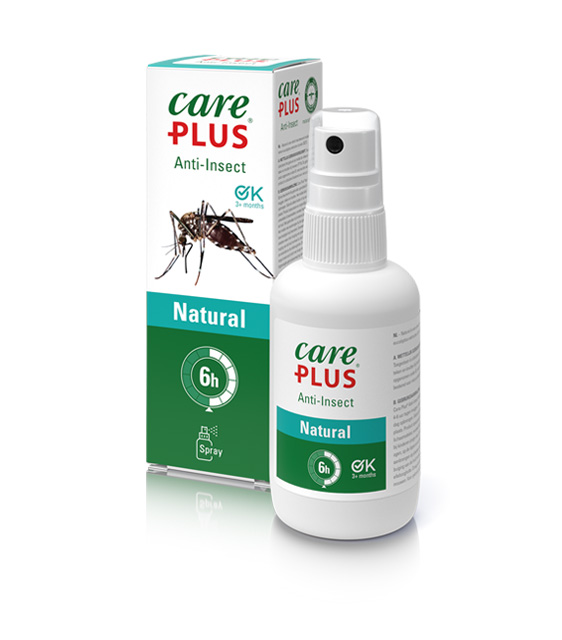
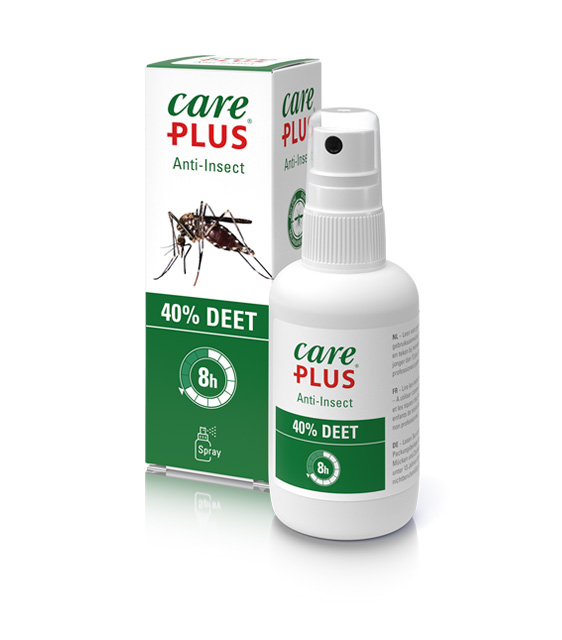
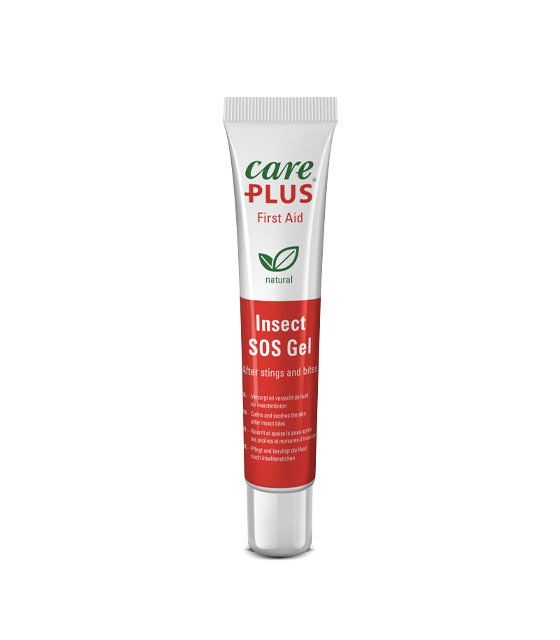

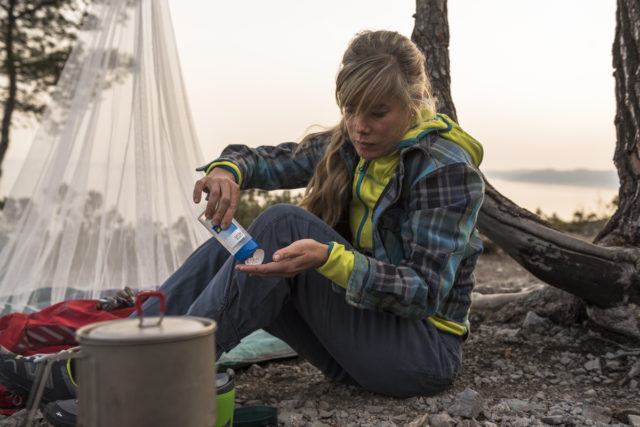
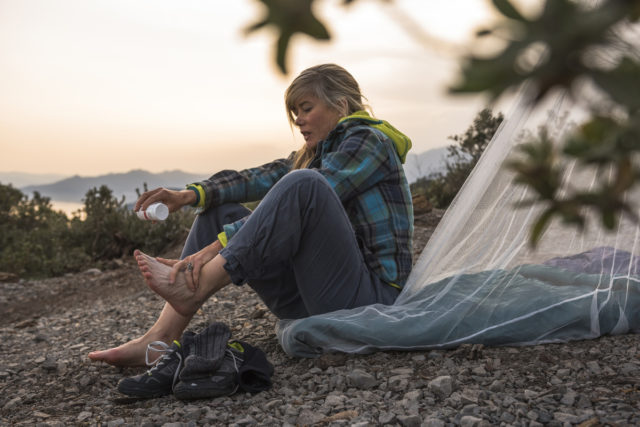
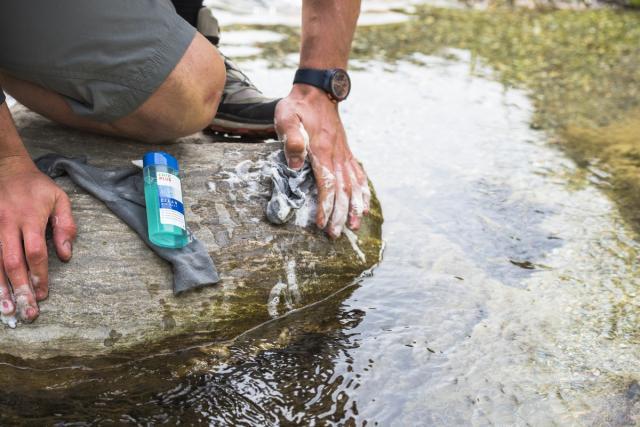
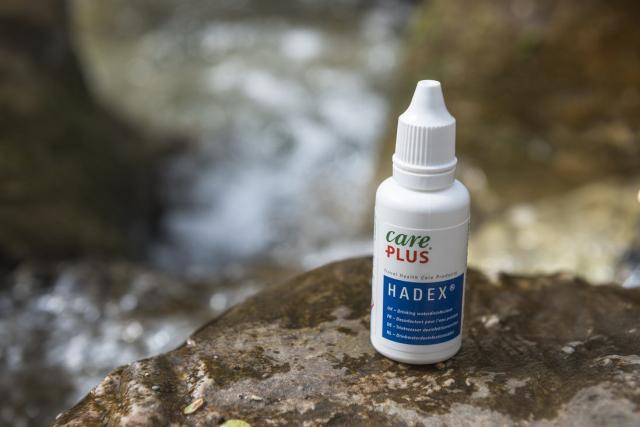
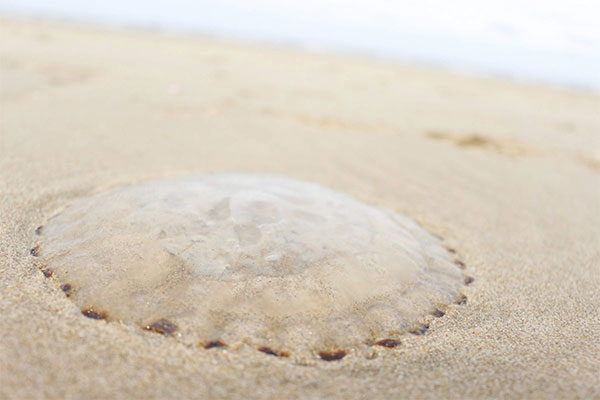
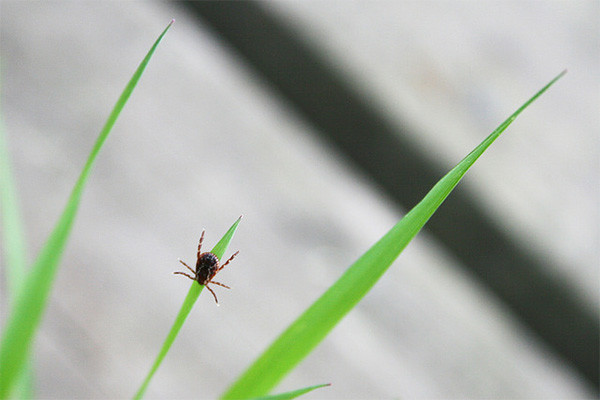
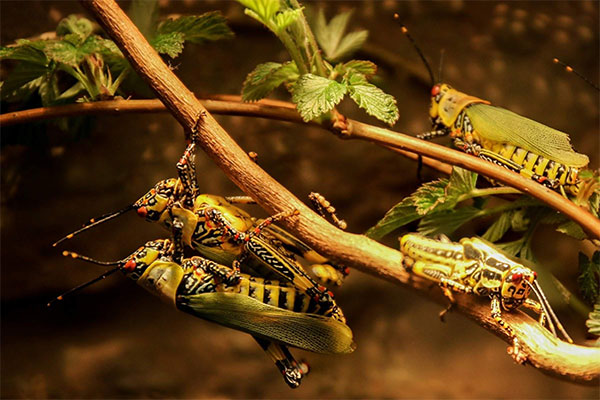
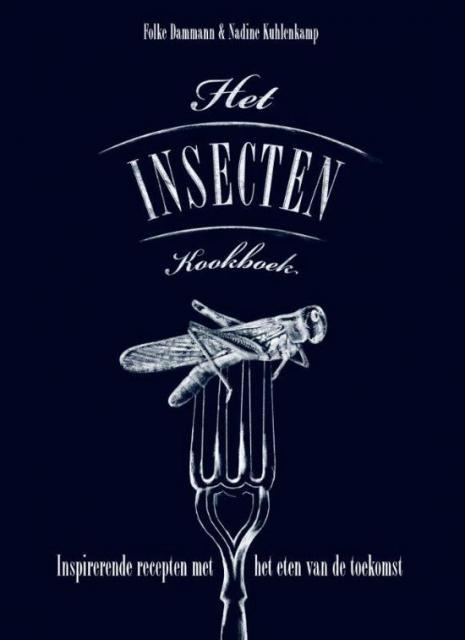 Are you ready for a new way of cooking? We recommend the caramelised grasshoppers from the Insect Cookbook.
Are you ready for a new way of cooking? We recommend the caramelised grasshoppers from the Insect Cookbook.